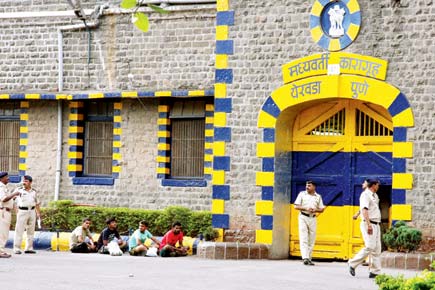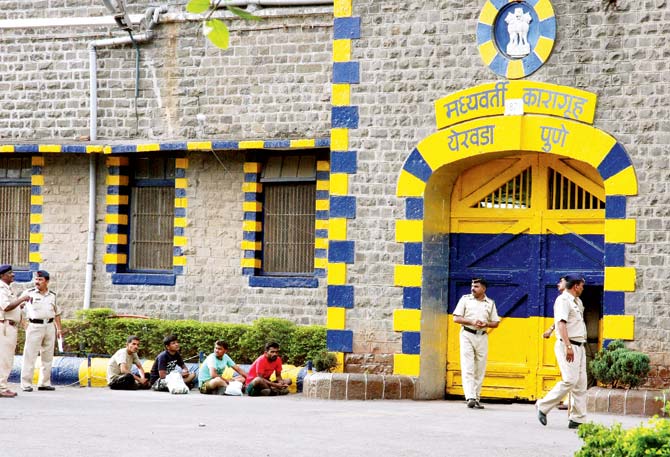Yerawada prison has sent 150 undertrial prisoners home after they confessed to their crimes and the authorities were convinced that they had reformed during their time in jail


ADVERTISEMENT
Yerawada Central Prison may be the only jail where the prisoners are more than happy to admit their guilt, because it means they can finally walk free. It’s a win-win solution for both, the overcrowded jail, and the hundreds of undertrials who have been languishing there for months on end for petty crimes because of the slow pace of justice.
Built to handle 2,449 prisoners, Yerawada jail is bursting at the seams with nearly twice that number. About 93% of this additional burden comprises undertrials, who are often first-time offenders arrested for petty crimes but end up wasting away in prison for months or even years without trial.
Two birds, one stone
Prison authorities have finally figured out how to resolve both issues by speeding up such cases in the jail court. In the past month alone, Yerawada prison has sent 150 undertrial prisoners home after they confessed to their crimes and the authorities were convinced that they had reformed during their time in jail.
This move was introduced by the Pune District Legal Service Authority (PDLSA) and the prison authorities. Although the jail court was built three years ago on the Bombay High Court’s direction, it would rarely be used. When the new Principal District Judge (Pune) Prithiviraj Chavan took charge, he issued a mandate that judicial magistrates (First Class) would have to visit the prison and dispose of cases relating to petty offences. Since November 21, Judicial Magistrate (First Class) Arvind Bhandarwar has attended to 250 such cases in the jail court.
Jail Superintendent UT Pawar told mid-day, “We have a separate cell in our prison where we keep undertrial prisoners in the age group of 18-23, who make up a large part of the prison population. Most of them are involved in petty offences but have been languishing behind bars for years. They tell us that their biggest issue is that they end up spending more time in prison because their trials are prolonged.”
Trials held up
Another jail officer explained why the trials end up being delayed: “Sometimes prisoners are not produced in court on their trial dates either because of shortage of manpower. The inmate has to be escorted by a policeman, who gets just Rs 100 for the expenses. It is a time-consuming duty, and many cops demand bribes from inmates if they want to go to court.”
Superintendent Pawar added, “Many of the first-time offenders are young and impressionable. Keeping them in prison for too long would have destroyed them and perhaps even driven them to commit more heinous crimes in the future. So, initially we targeted this age group to fast-track their cases.”
Assistant Public Prosecutor Santosh Shinde, who assisted in the cases, said, “This is a unique way to dispense justice. Most of the cases were assault, theft, pick-pocketing, robbery and cheating, which has a maximum punishment of up to seven years.”
Opposition
However, not everyone is impressed with the scheme. Former Pune Bar Association member Milind Pawar has written to the Judicial department and high court asking for the practice to be banned. Pawar said, “This is unconstitutional and does not follow the provisions laid down under the Criminal Procedure Code. This is merely a hasty decision to reduce the burden on the jail. Jail authorities emotionally blackmailing the prisoners in pleading guilty so they can get out of jail. Instead, the undertrials should be given better access to lawyers and the court.”
Superintendent Pawar refuted these allegations, saying, “This is first such unique achievement and it will be taken forward and practised by other jails too. Our purpose is not to merely reduce the prison population, but we also held counselling sessions for the undertrials and collaborated with NGOs to ensure they have job opportunities when they leave jail.”
 Subscribe today by clicking the link and stay updated with the latest news!" Click here!
Subscribe today by clicking the link and stay updated with the latest news!" Click here!







